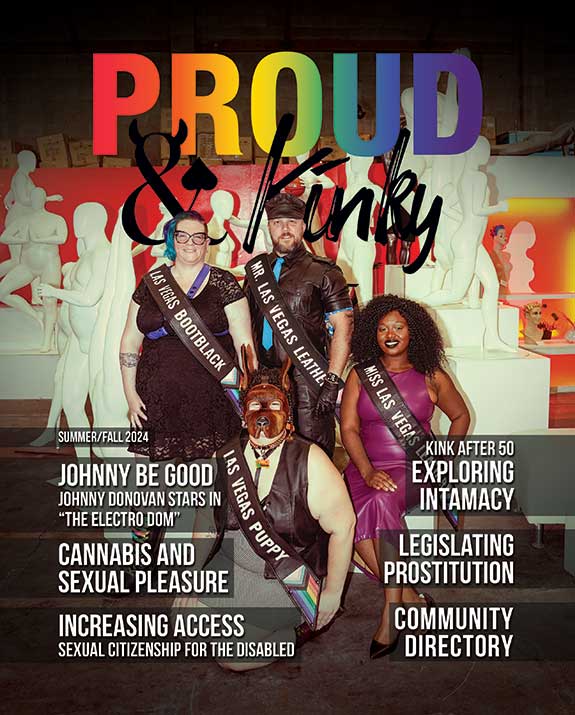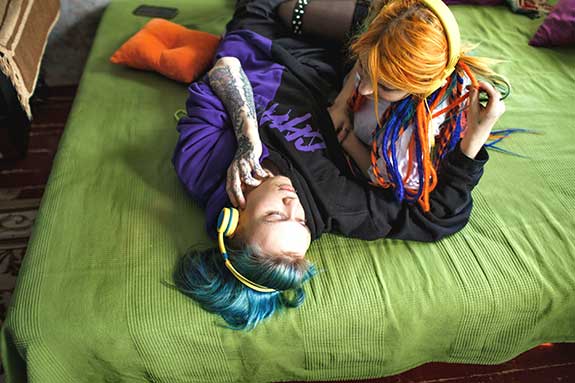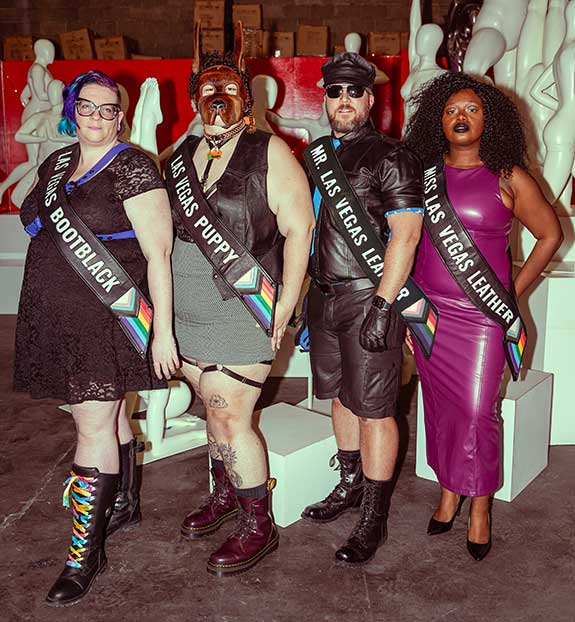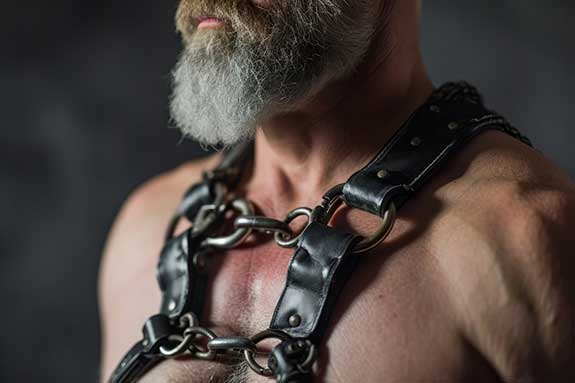Increasing Access
By Jacklyn Murphy / Photography by Mr. Pam
Sexual citizenship is the recognition of one’s right to sexual self-expression, and that same recognition of a right in others. While it sounds simple, it is important to reflect on how this is carried out in our everyday lives. Historically, society has pathologized those who live on what some might call the “outskirts” of societal norms. Individuals who engage in kink/BDSM practices were once so pathologized that medical professionals diagnosed them with oppressive labels such as “sexual deviants.” Similarly, members of the LGBTQIA+ communities were subject to harmful practices in the name of “research” simply for existing in a way that was not aligned with the heteronormative expectations. It’s 2024, and while we have moved far from this monolithic understanding of sexual expression and identity, there is still much work to be done.

Often missing from the conversation around sexuality are discussions of disability. Aside from concerning fetishizations of disabled bodies, society tends to exclude this population from sexual narratives altogether. This lack of representation reinforces the desexualization of disabled people, effectively denying them sexual citizenship. Absence of disabled bodies in media and sex education perpetuates the narrative that disabled people do not engage in sex, and extends into judgment from the non-disabled person on the “capacity” that disabled people can have sex all the way to the moral judgment of “who can and should have sex”.
When people do not see themselves represented in common narratives they may internalize the belief that they do not belong or are not sexual beings. These internalized feelings can be as harmful, if not more so, than the prejudices held by others. Therefore, there is a desperate need for more inclusive sexual spaces. Not surprisingly, the kink/BDSM community might offer some solutions. As a queer, autistic, kinky sex researcher I have been working the past several years learning about the research that exists examining autism and sexuality. Emerging research suggests that there are some relations between kink/BDSM practices and the autistic community. As a sex researcher I am currently working on a project that highlights characteristics within kink/BDSM practices that complement and increase pleasure and accessibility for the autistic community.

Moving beyond autism kink/BDSM spaces have the potential to cultivate inclusive environments for all interested individuals free of judgment. Due to the experience of being on the “outskirts”, these communities tend to be open to a variety of human expressions. To make these spaces more accessible to disabled people though, several steps need to be taken.
Starting with physical spaces we need to start by ensuring physical accessibility. Some examples of this could be having venues that are wheelchair accessible, with ramps, elevators, and wide doorways. Additionally, providing clear communication about the layout and available accommodations can help attendees plan their participation more comfortably. While not limited to those with physical disabilities sensory accommodations are also essential; for instance, offering quieter spaces for those with sensory sensitivities or having dimmable lighting options can make the environment more inclusive. Providing accessible information in multiple formats (e.g., braille, large print, or audio descriptions) ensures that everyone can fully participate in and enjoy these spaces.
For events and spaces that include staff or volunteers there can be training and disability awareness and inclusive practices. This could include learning how to assist individuals with disabilities respectfully, and understanding a variety of diverse needs that different disabilities may entail. This culture of consent and open communication is crucial and will help facilitate spaces where individuals can feel safe to express their wants, needs, and boundaries without fear of exclusion.

With intention, thought, and curiosity kink/BDSM spaces could be created to create a more accessible space for the disabled population. We have an opportunity to foster an inclusive community mindset that actively invites and involves people with disabilities in planning and execution of events, spaces, and more. We can contribute to the accessibility of sexual citizenship and demonstrate that variety in sexual expression is not only accepted but celebrated.
A note from the author: While there is often a discussion around person-first language the primary communities being discussed here (autism and disabled folk) have emphasized a preference for identity first language. It is the intention to use the language that the community has continued to request to push against problematic pathologizing language with the understanding that there may be different preferences at an individual level. If you’d like to read more about language please check out writings by Nick Walker. https://neuroqueer.com/neuroqueer-heresies/
Research participants: I am currently putting together a research study specifically looking at the autistic kinky experience. Self-diagnosis is recognized and valid; if you or anyone you know is interested in participating in future research, please contact me directly at [email protected].
This article was originally published in the second issue of PROUD & Kinky Magazine. You may read it in its original format here.






